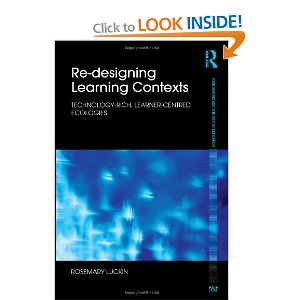One of the pleasures of my job is that we work with learners and teachers through participatory research and design. Recently we have been working with teenagers at several different schools as part of a research project exploring teenagers’ understanding of energy and their consumption of it. With a view to motivating their curiosity to understand more and to want to be thoughtful about their own consumption and that of their peers, families and communities. The nature of the participatory approach helps the learning to work in all directions, so we learn a great deal through the process, not just about the teenagers and their energy lives, but about things like Earth Hour 2012. One of our groups of young people have taken the initiative at their school and organised local events to prompt people to think on Earth Hour. I didn’t know about Earth Hour until they enlightened me, which is a lovely demonstration that teenagers are not just key consumers of energy, they are also key communicators and I wil now be turning off my lights for an hour at 8.30 pm on Saturday
We know that despite the fact that we hear a lot about energy sustainability in political and popular rhetoric, energy consumption is rising. Teenagers are certainly important consumers now and in the future and yet little is known of their conceptions about energy. There is growing evidence that they find it hard to translate their formal learning about energy into an understanding of their personal energy consumption. We need to know more about: What energy consumption is relevant to teenagers? Why do teenagers think energy is an issue? Where do teenagers learn about energy? What would motivate teenagers to learn about energy consumption? And to know if they are they concerned.
It has been fascinating to find out more about teenage culture through the photo diaries, focus groups, activities, questionnaires, and design work that we have completed.
And, there are clear ways in which technology can help, for example through:
- linking science learning into everyday life,
- motivating and supporting enquiry into personal energy consumption e.g. thorugh a mobile phone app,
- linking resources in teenagers’ personal contexts to support enquiry,
- and helping to communicate and activate their social networks about issues that spark their interest, such as Earth Hour


